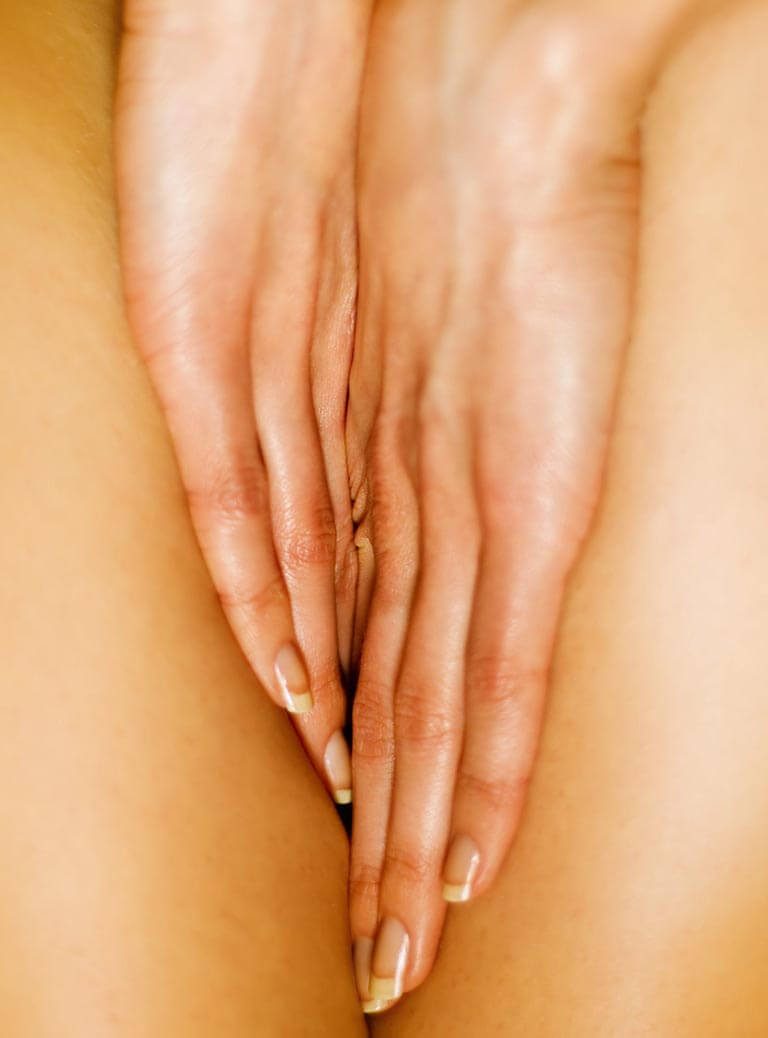An itchy cooch really is uncomfortable, especially that the vagina and vulva (the labia, clitoris, and vaginal opening) are very sensitive areas.
Most vaginal itching shouldn’t cause panic. It’s quite common and usually goes away on its own.
There are a lot of possible reasons for the itching, and sometimes it’s already a result of an underlying condition or infection. Better have it checked by a doctor immediately if it’s really bad or you think a condition is causing it. Self-medication might just make it worse especially if you don’t know the cause.
Possible causes of an itchy cooch
Here are some of the possible causes that make the vagina and the surrounding area itch.
Irritants
You most likely come face to face with these irritants on a daily basis. Getting irritating chemicals too close to the vagina can trigger an allergic reaction and make the vagina itch. Common chemical irritants are:
- Soap
- Bubble baths or bath bombs
- Feminine sprays and washes
- Douches
- Creams
- Ointments
- Detergents
- Fabric softeners
- Scented toilet paper or wet wipes
For those who have diabetes or experience urinary incontinence, urine may also cause vaginal itching and irritation.
Hormone changes
Declining estrogen levels, which often occurs during menopause and breastfeeding, cause the thinning of the vaginal lining. When this happens, it leads to vaginal dryness that causes itching and irritation.
Estrogen levels increase again when breastfeeding moms stop nursing.
Skin diseases
Itching in the genital regions could be from skin diseases such as eczema and psoriasis.
Eczema, or atopic dermatitis, is a rash that usually affects people with asthma or allergies. The rash is reddish, itchy, and scaly. It may also spread to the vagina in some cases.
Psoriasis is quite common. It causes scaly, itchy, red patches on the scalp and joints. Outbreaks can sometimes happen on the vagina as well.
Sexually Transmitted Infections
Gonorrhea, chlamydia, genital warts, genital herpes, and trichomoniasis are some of the STIs that can cause itching in the vagina. Other symptoms that they can also bring are green or yellow vaginal discharge and pain when urinating.
Yeast infection
The vagina naturally has a good balance of yeast and other good bacteria. These bacteria keep the vagina healthy and shouldn’t cause any problem; except when the growth of yeast goes overboard.
Vaginal yeast infection is a result of an overgrowth of yeast in the vagina. It’s a very common condition that can affect a lot of women, especially those who took a course of antibiotics. These types of medications destroy the good bacteria that balance the growth of yeast.
Itching of the vagina and a burning sensation accompanied by white, lumpy discharge are symptoms of yeast infection.
Bacterial vaginosis
Bacterial vaginosis (BV) is also a common cause of vagina itching.
Imbalance in the good and bad bacteria in the vagina is also what triggers BV.
BV doesn’t always show symptoms, but if it does, it usually includes itching and abnormal, and foul-smelling discharge. It may be thin and grayish or white. Sometimes it’s also foamy.
Vulvar cancer
In rare cases, vulvar cancer is the cause of vaginal itching. This type of cancer involves the vulva, the external part of the female genitals. Included here are the inner and outer labia, clitoris, and vaginal opening.
Vulvar cancer doesn’t always show symptoms, but they may include itching, abnormal bleeding, or pain in the vulvar area.
Early diagnosis is the key to getting treated successfully. This is why getting checked regularly by your doctor is essential.
Lichen sclerosus
Lichen sclerosus is a rare condition that causes itching and white spots in the vulvar area. The causes of lichen sclerosus is still unclear, but postmenopausal women are more likely to develop this condition.
Pubic lice
These tiny, crab-like critters make the vaginal and pubic areas itch a lot. They usually attach to pubic hair, but may also transfer to other parts of the body that’s covered in rough hair.
When to see a doctor
Don’t assume that yeast infection is the cause of your itching. It may be, but self-diagnosing and self-medicating can make things worse and harder to solve. The best way to find out what’s causing it and what you can do is to have a doctor check what’s up.
Go see a doctor immediately if the itching is bad enough to bother your sleep and daily life and if it goes on for more than a week. Watch out for these other symptoms as well:
- Ulcers or blisters on the vulva
- Pain or tenderness in the genital area
- Redness or swelling of the genital area
- Difficulty urinating
- Unusual vaginal discharge
- Discomfort during sex
Any of these is a sure sign to consult a doctor immediately.
How to prevent itching
Vaginal itching is hard to ignore, but it’s easy to prevent. Most of the causes can be prevented through good hygiene and lifestyle habits. These simple steps that you can easily do at home will help prevent vaginal irritation and infection:
- Use warm water to wash your genital area. If you’re uncomfortable with using just water, make sure your soap is mild and unscented.
- Avoid scented soaps, bubble baths, bath bombs, and lotions.
- Avoid vaginal sprays and douches.
- Change into fresh and dry clothes immediately after swimming or exercising.
- Wear cotton underwear and change it every day.
- Eat yogurt with live cultures. The good bacteria can help fend off yeast infections.
- Use condoms every time you have sex.
- Always wipe from front to back after using the toilet.
Sources:
https://www.healthline.com/health/vaginal-itching




Hi po ask ko lang po ng kati po kasi ng ari ko at panay ihi po ako ano po dapat kong gawin?